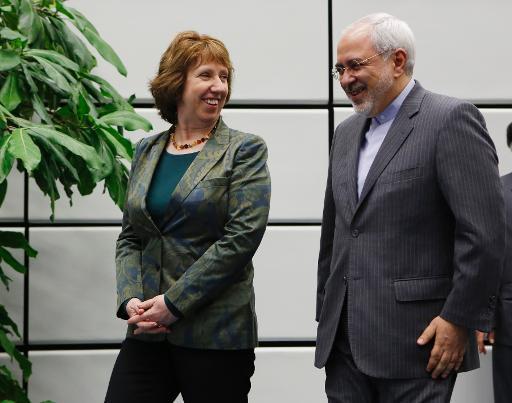You are here
Iran’s Zarif sees no nuclear deal this week
By AFP - Mar 16,2014 - Last updated at Mar 16,2014
TEHRAN — Foreign Minister Mohammad Javad Zarif said on Sunday talks with world powers this week are unlikely to result in a comprehensive accord on Iran’s controversial nuclear drive.
“This round of talks will be more serious than previous ones,” Zarif said in remarks reported by the official IRNA news agency.
“But we do not expect an agreement [in this round], as it is not expected in the timetable we have agreed,” he added.
Iranian negotiators and representatives of the so-called P5+1 group of world powers resume talks in Vienna on Tuesday for the second time since November, seeking to transform an interim deal into a long-lasting agreement by July 20.
According to Iranian media, the latest talks will wrap up on Wednesday, a day before Iran celebrates the Persian New Year.
Under November’s interim deal, Tehran froze certain nuclear activities for six months in exchange for relief from punishing sanctions hitting its economy.
Sensitive issues must be resolved before a comprehensive agreement can be struck, a deal that would allay Western suspicions that Iran’s nuclear programme masks a military objective, despite repeated denials.
These include the scope of Iran’s enrichment programme and Western demands that its bunkered Fordo uranium enrichment site be closed, along with the Arak heavy-water reactor.
The unfinished Arak site, which Iran says will be used for research, could theoretically provide Tehran with an alternative route to an atom bomb.
In Tehran, more than half of Iran’s 290-member parliament issued a statement on Sunday warning against “any restrictions on research-related activities”, particularly Arak and uranium enrichment.
They also said Iran’s “defence issues, including the missile programme” — which could provide Tehran with a device to deliver a nuclear warhead — should not be discussed in negotiations with the P5+1.
The group — the United States, Britain, France, China and Russia plus Germany — is seeking to pressure Iran over its ballistic missile programme as part of a comprehensive deal.
Final decisions on key affairs of state, including Iran’s nuclear drive and its missile programme, rest with the ultimate authority, supreme leader Ayatollah Ali Khamenei.
An official in Khamenei’s office and former parliament speaker, Ali Akbar Nateq Nouri, said at the weekend Khamenei was kept appraised of “minute details of the negotiations” by the foreign ministry, the Jomhuri Eslami daily reported.
Khamenei is sceptical about a lasting deal. He said in February that the talks would “go nowhere”, but that he was not against trying to reach an agreement.
Related Articles
Iran laid out “red lines” Monday related to its ballistic missile programme, nuclear sites and uranium enrichment ahead of fresh nuclear talks with world powers.
Iran will never slow down its nuclear research programme, its supreme leader said on Wednesday as negotiators from Tehran and six world powers struggled to narrow “significant gaps” that the United States warned might be insurmountable.
Six world powers and Iran made a “good start” in talks in Vienna towards reaching a final settlement in the decade-old stand-off over Tehran’s nuclear programme, but conceded their plan to get a deal in the coming months was very ambitious.














